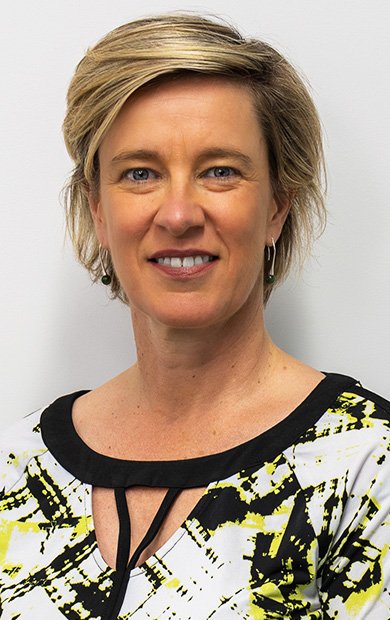├└╝¦╔ńŪ° delivered first round of CET capacity-building workshops in Southeast Asia
Statements
├└╝¦╔ńŪ° has delivered its first round of capacity-building workshops in Southeast Asia as part of its Critical and Emerging Technologies (CETs) program.
With support from the Department of Foreign Affairs and Trade (DFAT), the organisation has partnered with seven Southeast Asian countries to build awareness and capacity in CET.
The CET program is all about current and emerging technologies such as cyber security, blockchain, artificial intelligence, agritech, biotech, digital-twin, smart cities, the metaverse, and more. These technologies have the ability to significantly enhance a countryŌĆÖs economic success, security and social cohesion. This field is rapidly evolving, making CET standards vital to the safety, security and wellbeing of Australia, as well as our regional and international partners.
This program focuses on the importance of standards in this area, as well as building knowledge locally and regionally. Key outcomes include the enhanced participation of Southeast Asian experts in the development of CET standards in international standards forum, and the improved adoption and use of these standards within Southeast Asian economies.
As part of the program, ├└╝¦╔ńŪ° conducted a series of in-country visits. These visits involved a range of interactive workshops aimed at equipping local CET stakeholders from academia, industry and government with the knowledge and skills for CET standards development. Key activities included:
- Reviewing the current standards and CET landscape
- Capability assessments
- Stakeholder mapping
- Networking; and
- Capacity-building workshops
In addition, discussions were held on topics including cybersecurity, smart cities, digital twin, the internet of things and artificial intelligence.
Each countryŌĆÖs relevant national standards body (NSB) developed a Critical Technology Action Plan and, over the coming months, ├└╝¦╔ńŪ° will work with each NSB to support their roll-out.
Feedback from the workshops was highly positive, with stakeholders highlighting the value of engaging activities and knowledge sharing. One participant from the Department of Standards Malaysia commended the ŌĆ£helpful handouts, powerful presentation and knowledgeable Australian teamŌĆØ. Similar feedback was received from the Philippines, with a participant from the Bureau of Agriculture and Fisheries Standards noting the ŌĆ£clear and concise presentation of topicsŌĆØ and high relevance of CET for the development of various sectors.
Jonathan Vu, ├└╝¦╔ńŪ° International Engagement Manager, says: ŌĆ£It was great to, once again, be able to engage in-person with our Southeast Asian NSB partners and their CET stakeholders to deliver capacity building activities and to foster the adoption and use of international standards. The inclusion of standards in critical and emerging technologies not only offers countries positive economic growth, access to international trade and collaboration, but also strengthens national security and social welfare outcomes.

├└╝¦╔ńŪ° has delivered its first round of capacity-building workshops in Southeast Asia as part of its Critical and Emerging Technologies (CETs) program.
With support from the Department of Foreign Affairs and Trade (DFAT), the organisation has partnered with seven Southeast Asian countries to build awareness and capacity in CET.
The CET program is all about current and emerging technologies such as cyber security, blockchain, artificial intelligence, agritech, biotech, digital-twin, smart cities, the metaverse, and more. These technologies have the ability to significantly enhance a countryŌĆÖs economic success, security and social cohesion. This field is rapidly evolving, making CET standards vital to the safety, security and wellbeing of Australia, as well as our regional and international partners.
This program focuses on the importance of standards in this area, as well as building knowledge locally and regionally. Key outcomes include the enhanced participation of Southeast Asian experts in the development of CET standards in international standards forum, and the improved adoption and use of these standards within Southeast Asian economies.
As part of the program, ├└╝¦╔ńŪ° conducted a series of in-country visits. These visits involved a range of interactive workshops aimed at equipping local CET stakeholders from academia, industry and government with the knowledge and skills for CET standards development. Key activities included:
- Reviewing the current standards and CET landscape
- Capability assessments
- Stakeholder mapping
- Networking; and
- Capacity-building workshops
In addition, discussions were held on topics including cybersecurity, smart cities, digital twin, the internet of things and artificial intelligence.
Each countryŌĆÖs relevant national standards body (NSB) developed a Critical Technology Action Plan and, over the coming months, ├└╝¦╔ńŪ° will work with each NSB to support their roll-out.
Feedback from the workshops was highly positive, with stakeholders highlighting the value of engaging activities and knowledge sharing. One participant from the Department of Standards Malaysia commended the ŌĆ£helpful handouts, powerful presentation and knowledgeable Australian teamŌĆØ. Similar feedback was received from the Philippines, with a participant from the Bureau of Agriculture and Fisheries Standards noting the ŌĆ£clear and concise presentation of topicsŌĆØ and high relevance of CET for the development of various sectors.
Jonathan Vu, ├└╝¦╔ńŪ° International Engagement Manager, says: ŌĆ£It was great to, once again, be able to engage in-person with our Southeast Asian NSB partners and their CET stakeholders to deliver capacity building activities and to foster the adoption and use of international standards. The inclusion of standards in critical and emerging technologies not only offers countries positive economic growth, access to international trade and collaboration, but also strengthens national security and social welfare outcomes.

Email: ╠²

Email: ╠²
